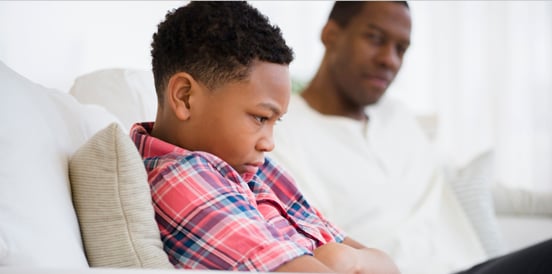Dr. Lansford is a Research Professor at Duke University, North Carolina. Her research focuses on the development of aggression and other behavior problems in youth, with an emphasis on how family and peer contexts contribute to or protect against these outcomes.
The Jacobs Foundation met Jennifer Lansford at Marbach Castle for an interview. Lansford explains the importance of time-outs for both: children and parents.
Why do we hear so little about physical punishment of children? Do you think it’s necessary for the society to know more about it?
The way that people and society think about corporal punishment differs a lot depending on the broader country. Kenya for example, corporal punishment there was outlawed in 2010, but most people -even now- don’t know about the ban. If people don’t know that something is against the law, you wouldn’t expect it to have any effect on their parenting. More societal awareness of the issue can be important. And not just awareness of the issue that corporal punishment can be damaging to children but also what parents can do instead. Because if you do not give any alternatives for what to do instead then parents can be thinking that if I don’t use corporal punishment my child would just be out of control.
What should parents do instead?
I think for the youngest kids’ probably just distraction, for example if a toddler is starting to get into something that would be dangerous or just not appropriate, just distracting those with a toy can be effective. No punishment is really needed; it’s just a matter of redirecting the child to something that is a good thing.
Something like time-outs are often recommended for preschool age children or young children. It lets the child cool off; it lets the parent cool off. Part of the time-out is that it’s not just for the child but it’s for the parent. A lot of times when parents end up hitting kids, it’s because the parent is emotionally aroused and is angry. By giving the child a time-out, in a way it also gives the parent a time-out to calm down and figure out how to deal with the child in a more controlled, planned way. Aside from reactionary things it is also important for parents to be proactive. Part of that is doing a lot of talking with children and explaining reasons to children and clear what your expectations are as a parent.
How do you think your research results can help strengthen children and youth in the future?
I think the results can be used to advocate for a child rights perspective because some of these forms of corporal punishment are so detrimental to children. Part of this could build awareness of the prevalence and harm associated with corporal punishment. In terms of positive youth development, one of the links we haven’t studied this much in our work is that kids have worse relationships with their parents if they are being corporally punished. Even during adolescence when in some places people think all adolescents are hanging out with peers even then parents are really important to adolescents’ positive development. We can use these findings to inform parents about how to build more positive relationships with their children.
Support for parents – where should it come from?
I think its pediatricians or other healthcare providers who can do this. And this depends a lot on what the different systems are in place and how much parents have access to different health care providers. Because they tend to be viewed as kind of respected people who help you with physical health. There are a lot of countries that have developed parenting interventions in one way or another, and those are delivered in a lot of different ways. Sometimes it’s through healthcare providers; sometimes it’s through public service announcements like a media campaign.
What fascinates you about your research?
My initial interest in this happened looking at immigrant families in the United States, because parents would immigrate to the United States and then do something that was considered appropriate in their country of origin, but that sometimes came into conflict with American standards of child protection. And that happens in reverse, too. There are big differences across countries in parent’s use of corporal punishment. Sweden was the first country to outlaw all forms of corporal punishment back in 1979. And now the number of countries is exponentially growing that have banned corporal punishment, but it is found 46 countries now that have outlawed corporal punishment and the United States is not one of them. The international community is increasingly taking the position that all forms of corporal punishment are a violation of children’s rights, regardless of the country that they live in. Further on, they increasingly making the point that children are people, too, and they should have the same rights as adults.
